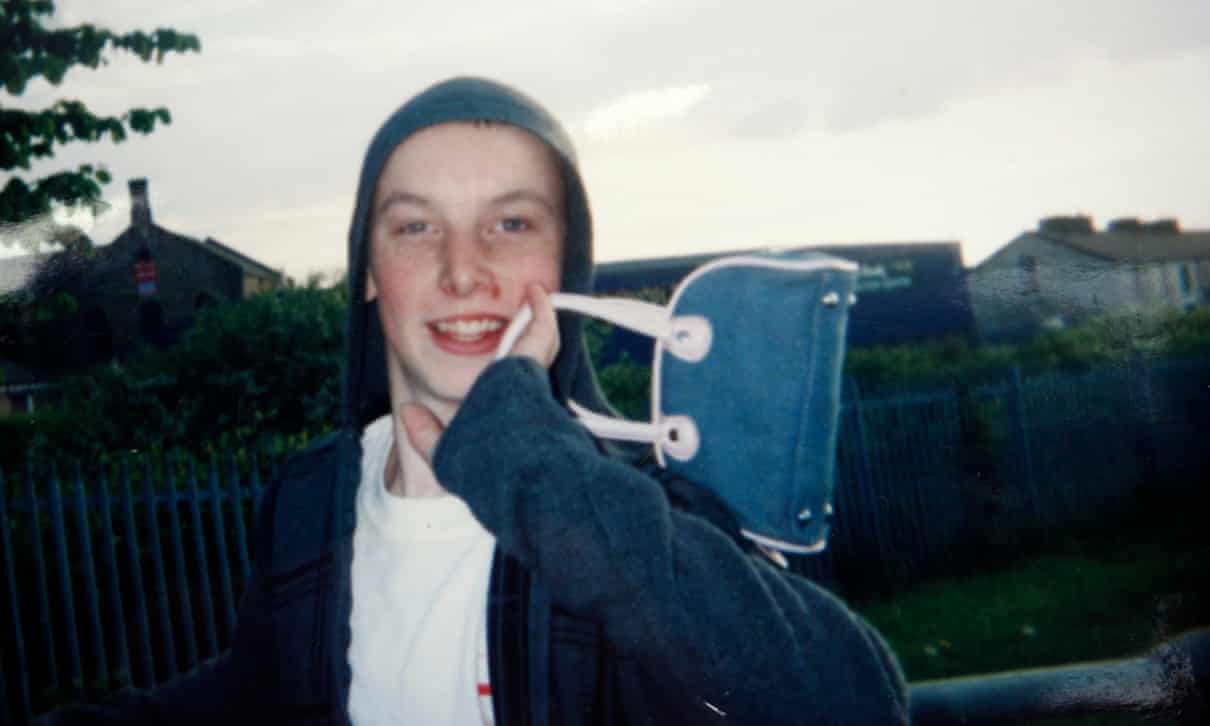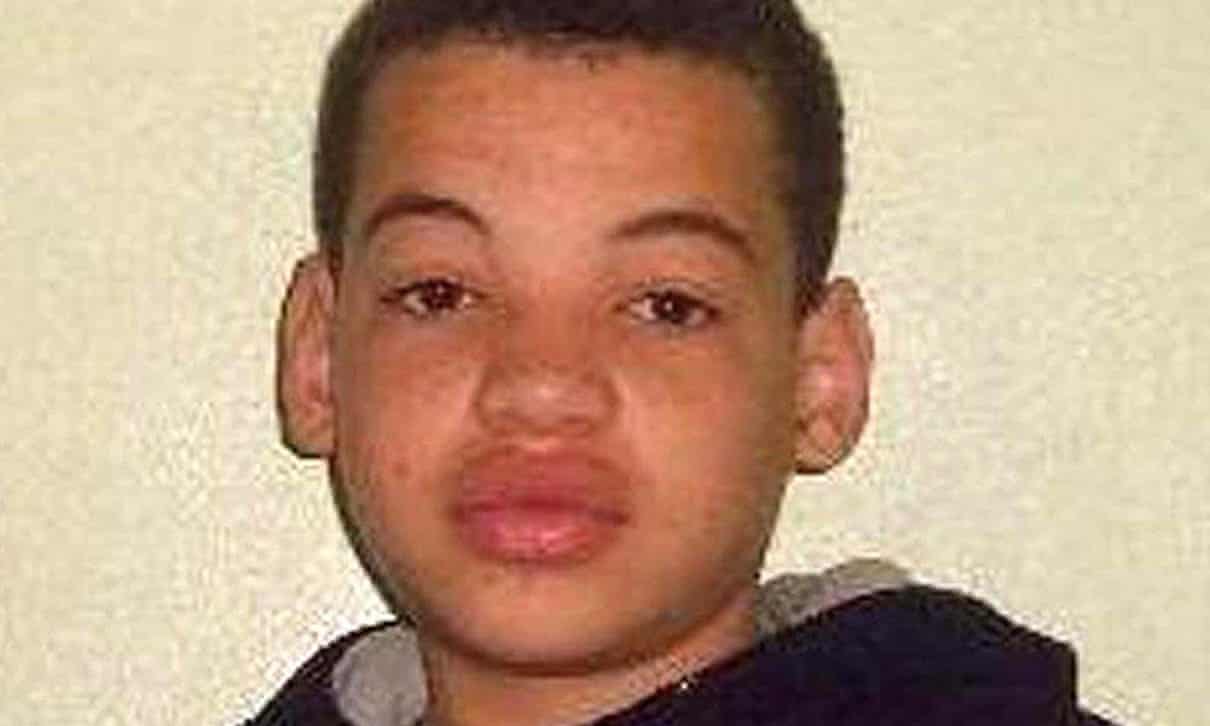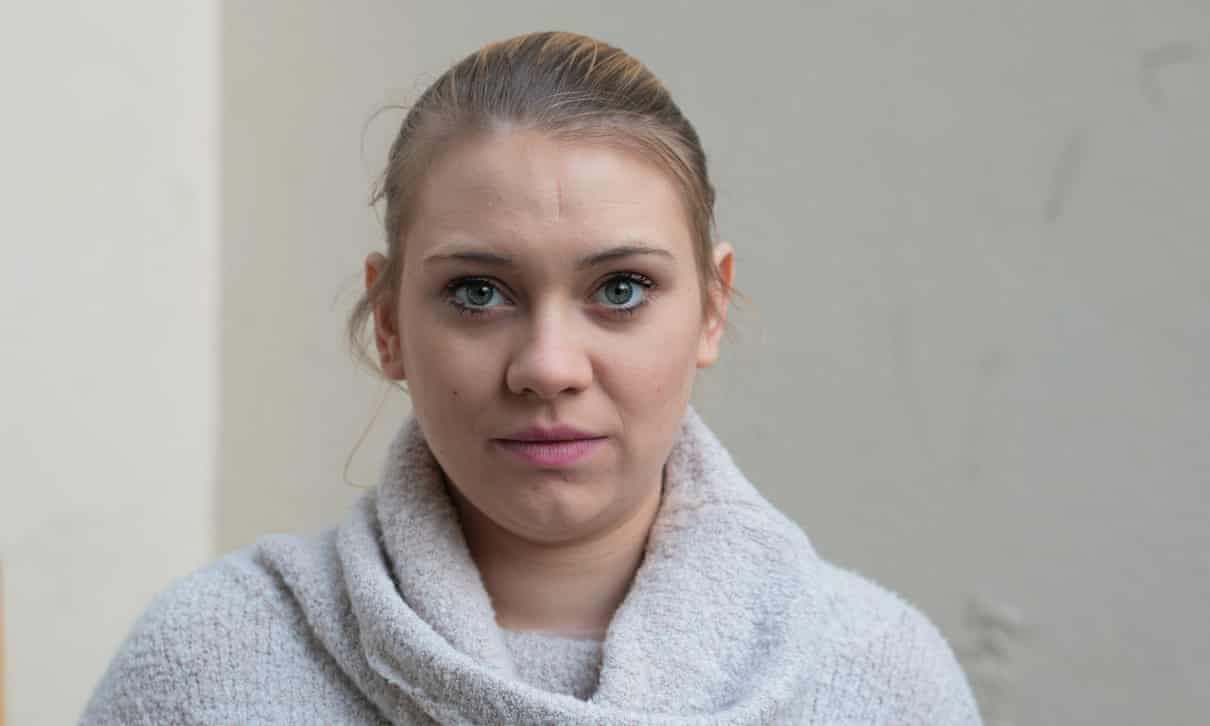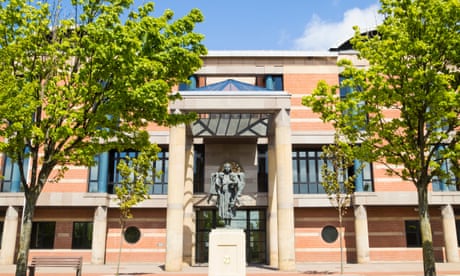This
article is more than 1
year old
Children’s prisons inflict unspeakable damage on inmates. Close them now
There is no nurturing or rehabilitation in these
institutions – just a shameful litany of death and abuse

‘In
August 2004, 14-year-old Adam Rickwood became the youngest child to
die in custody in this country in over 100 years.’ Photograph:
Christopher Thurmond
Tue
23 Apr 2019 11.28 BST
T
he
15th anniversary of Gareth
Myett’s death
in a children’s prison is being commemorated by a campaign to end
child imprisonment in the UK. It is hugely appropriate – because in
the intervening years, those responsible for running children’s
prisons have repeatedly shown that they are incapable of nurturing
and rehabilitating the children in their care. Time and again we have
seen children leave these institutions abused and irreparably
damaged. That is, if they are lucky enough to come out at all. Gareth
Myatt wasn’t.
In
April 2004, Myatt died while being restrained by three custody
officers at Rainsbrook secure training centre near Rugby in
Warwickshire, operated then by G4S. The restraint followed his
refusal to clean a sandwich toaster. Gareth was under 5ft tall and
weighed six and a half stone. One of the restraining officers was 6ft
tall and weighed 16 stone. During the restraint Myatt said he could
not breathe. He was told: “If
you can talk, you can breathe.”
He died from positional asphyxia, choking on his own vomit. He was 15
years old and had been in custody for three days.
Article
39,
a children’s rights charity, Inquest,
which provides expertise on state-related deaths, the Howard
League for Penal Reform
and others launched
a campaign
in November to end child imprisonment. The campaign is pressing for
the closure of England’s child prisons, proposing that children are
only deprived of liberty as a last resort. It is also pushing for the
care and support of detained children to be moved from the Ministry
of Justice to children’s social care services.
This
might sound like a radical proposal, but it isn’t. In fact, in 1990
the UK signed up to the United
Nations Convention on
the Rights of the
Child,
which states that incarceration for children should only be used as a
measure of last resort and for the minimum time possible.

‘In
April 2004, Gareth Myatt died while being restrained by three male
custody officers at Rainsbrook secure training centre.’ Photograph:
Northamptonshire Police/PA
In
recent years, the numbers of jailed children has thankfully fallen,
but Britain
still locks up more children
and for longer than any other European country. And England, Wales
and Northern Ireland have the youngest age of criminal responsibility
in Europe – children can be convicted for a crime at the age of 10.
The most common age of criminal responsibility in Europe is 14.
Advertisement
We have
reported on child
detention in British prisons
for two decades, and have had the unwelcome privilege of “getting
to know” some of these children who died in prison.
There
was Joseph
Scholes,
who took his own life in Stoke Heath young offenders’ institution
in 2002. He had been sent there after taking part in a street robbery
in which a mobile phone was stolen. The prosecutor informed the judge
that Scholes had offered no physical violence to any person during
the offence.
In
sentencing, the judge acknowledged Scholes’s vulnerability and drew
the attention of the prison authorities to his acts of serious
self-harm leading up to his trial. Stoke Heath’s reaction? To place
him in a filthy strip cell with a concrete plinth for a bed, remove
his underwear and make him wear a rough garment that resembled a
horse blanket. At his inquest, a year later, some members of the jury
wept openly when they were passed the garment for inspection. Joseph
killed himself in that cell, nine days after he entered custody. He
was 16 years old.
We
have also repeatedly reported on the widespread physical and sexual
abuse of children in custody, stretching back decades and still
taking place now. In 2013, we
reported on the serial rape
of boys by a prison officer at Medomsley
detention
centre,
Durham, throughout the 1970s and 1980s. The perpetrator, Neville
Husband,
who ran the kitchens, was later sentenced to 10 years in prison and
is now dead. Many of his fellow officers appeared to turn a blind eye
to the horrors acted out before them. Giving evidence at Husband’s
trial, one officer said: “Husband always used to keep a boy behind
at night. We always felt sorry for that boy.” Sorrow, but no
action.
In
2014, we exposed
the abuse of children
in Medway secure
training centre,
then operated by G4S. In particular, we told the tale
of Roni Moss,
who was sent to Medway in 2010 when she was 15. She thought she may
have been pregnant and asked staff if she could have a scan. They
refused, saying she simply lacked iron.
Two
weeks later, she miscarried at around 2am. She rang the alarm bell in
her cell.

After
miscarrying in her cell, Roni Moss was given two sanitary towels and
told to go back to sleep. Photograph: Martin Godwin/The Guardian
“I
was in such pain, there was blood everywhere. I knew what was going
on, but I didn’t want to believe it,” she told the Guardian. The
member of staff took 25 minutes to bring three other officers into
her cell. “They gave me two sanitary towels and told me to go back
to sleep.” She was not taken to hospital for a week and a half. G4S
later confirmed to us that Moss’s account was accurate.
After
the Guardian report, Durham police launched Operation
Seabrook,
an investigation into abuse at Medomsley detention centre. In total,
1,784
people have now come forward
to allege they were victims of physical or sexual abuse at the
detention centre. This month, five former officers have been
convicted
of physical abuse at Medomsley
and jailed for a combined time of 17 years and 11 months.
Yes,
you may say, this is historical abuse that occurred nearly 50 years
ago. But, shockingly, these abuses are continuing today. In January,
we reported that staff at Medway secure training centre, now run by
the state after G4S was stripped of its contract, were still
unlawfully restraining children
for non-compliance. This week, parliament’s human rights committee
said the government must comply with international law and end use of
pain-inducing restraint techniques and solitary confinement of
children in detention.
Which
takes us back to another tragic death of a child in detention. In
August 2004, 14-year-old Adam
Rickwood
became the youngest child to die in custody in this country in over
100 years.
In
2004 Adam was remanded to Hassockfield secure training centre (built
on the site of Medomsley), where he had been remanded for a month on
wounding charges. At Hassockfield he was restrained for
non-compliance using a tactic called nose distraction technique which
basically involved a karate-like chop to the nose. Adam killed
himself shortly afterwards – but not before writing a detailed
letter asking, “What right do they have to hit a child?”
Fifteen
years on, we’re still asking the same question Adam did. And that
is why we support campaigners in calling for an end to child
imprisonment unless in exceptional circumstances. The simple truth is
the prison service and the private contractors have forfeited their
right to be trusted. Over the years they have shown that they only
know how to punish rather than repair our most damaged children, and
that is not good enough.
• This
article was amended on 24 April 2019. An earlier version incorrectly
indicated that Rainsbrook secure training centre is still operated by
G4S. That has been corrected. The location of Rainsbrook is more
accurately placed near Rugby in Warwickshire.
• Eric
Allison is the Guardian’s prisons correspondent. Simon Hattenstone
is a Guardian writer
News is under threat ...
… just when
we need it the most. Millions of readers around the world are
flocking to the Guardian in search of honest, authoritative,
fact-based reporting that can help them understand the biggest
challenge we have faced in our lifetime. But at this crucial moment,
news organisations are facing an unprecedented existential
challenge. As businesses everywhere feel the pinch, the advertising
revenue that has long helped sustain our journalism continues to
plummet. We need your help to fill the gap.
We believe every one of us deserves equal
access to quality news and measured explanation. So, unlike many
others, we made a different choice: to keep Guardian journalism open
for all, regardless of where they live or what they can afford to
pay. This would not be possible without financial contributions from
our readers, who now support our work from 180 countries around the
world.
We have upheld our editorial independence in
the face of the disintegration of traditional media – with social
platforms giving rise to misinformation, the seemingly unstoppable
rise of big tech and independent voices being squashed by commercial
ownership. The Guardian’s independence means we can set our own
agenda and voice our own opinions. Our journalism is free from
commercial and political bias – never influenced by billionaire
owners or shareholders. This makes us different. It means we can
challenge the powerful without fear and give a voice to those less
heard.
Reader financial support has meant we can keep
investigating, disentangling and interrogating. It has protected our
independence, which has never been so critical. We are so grateful.
We need your
support so we can keep delivering quality journalism that’s open
and independent. And that is here for the long term. Every reader
contribution, however big or small, is so valuable.
Support
the Guardian from as little as CA$1 – and it only takes a minute.
Thank you.
Topics

No comments:
Post a Comment